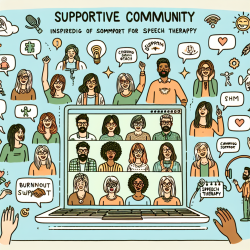The ability to accurately interpret facial emotions is crucial for effective social functioning. This skill can be impaired in individuals with fetal alcohol spectrum disorders (FASD), making it essential for practitioners to understand these challenges and develop strategies to support affected individuals. Recent research titled "Stability and Change in the Interpretation of Facial Emotions in Fetal Alcohol Spectrum Disorders from Childhood to Adolescence" provides valuable insights into this area.
Key Findings from the Research
The study examined the ability of children and adolescents with FASD to interpret facial emotions using the "Reading the Mind in the Eyes" (RME) test. The research revealed several important findings:
- Children with full fetal alcohol syndrome (FAS) showed persistent difficulties in interpreting facial emotions from childhood through adolescence.
- Those with partial fetal alcohol syndrome (PFAS) exhibited developmental delays but performed similarly to control groups by adolescence.
- The deficits were more pronounced for negative and neutral emotional expressions, while positively valenced expressions did not show significant differences among groups.
- The performance of individuals with FAS was partially mediated by verbal fluency, highlighting a potential area for targeted intervention.
Implications for Practitioners
Practitioners working with individuals affected by FASD can benefit from these findings by implementing tailored interventions that address specific challenges in emotion recognition. Here are some strategies practitioners might consider:
- Focus on Verbal Fluency: Since verbal fluency partially mediates emotion interpretation deficits, incorporating language development activities could enhance social cognition skills.
- Targeted Emotional Training: Develop programs that specifically address the recognition of negative and neutral emotions, which are areas of difficulty for individuals with FASD.
- Continuous Monitoring and Support: Regular assessments using tools like the RME test can help track progress and adjust interventions as needed.
- Collaboration with Families: Engage families in understanding these challenges and involve them in intervention strategies to create a supportive environment at home.
Encouraging Further Research
This study underscores the need for ongoing research to explore additional factors influencing emotion interpretation in FASD. Practitioners are encouraged to stay informed about new developments and contribute to research efforts where possible. By doing so, they can enhance their practice and improve outcomes for individuals affected by FASD.
To read the original research paper, please follow this link: Stability and change in the interpretation of facial emotions in fetal alcohol spectrum disorders from childhood to adolescence.










